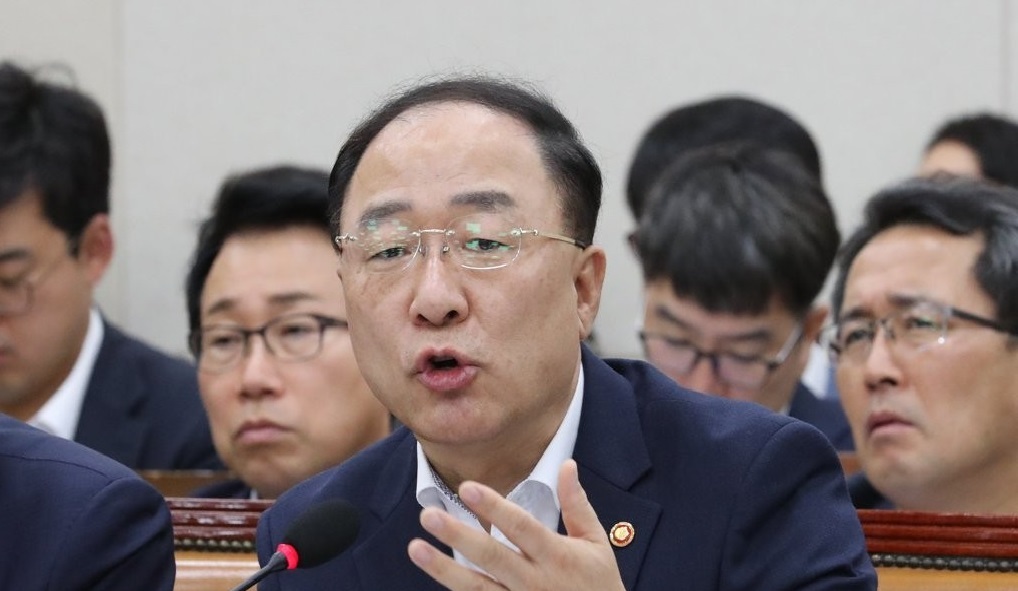A day after South Korea announced its decision to scrap a military intelligence-sharing pact with Japan, Deputy Prime Minister and Finance Minister Hong Nam-ki said Friday that the government will make efforts to minimize any negative impact this might have on the economy.
On Thursday, Seoul announced it would terminate the General Security of Military Information Agreement amid an ongoing trade dispute with Japan. Hong said the “pact was deemed not beneficial to the country.”
With the move expected to further fuel the trade row, Hong said the government would respond to Japan’s export curbs in an organized and detailed way, monitor volatility in the local financial market, and hold meetings with Tokyo’s economic officials twice a week. The remarks came during a meeting with reporters in Sejong.
 |
(Yonhap) |
Seoul officials will also attend a separate “macroeconomic meeting” presided over by the vice finance minister twice a week.
Hong noted that the termination of GSOMIA is expected to make talks with Tokyo on the export curbs more difficult.
“The government stands by its initial policy of minimizing the damage on local firms and pursuing measures (that can resolve the issue),” Hong said.
“But we are more concerned about how a prolonged trade row will affect the economy in terms of uncertainty. We will prepare with relevant agencies to counter such risks that could come from the possible situation,” he added.
As for concerns about the US designating Korea as a currency manipulator and announcing retaliatory measures related to auto tariffs, Hong simply said he believes it would “not reach that stage," brushing it off as an unlikely possibility.
US defense chiefs and Secretary of State Mike Pompeo earlier in the day expressed “strong concerns” over Korea’s decision to end GSOMIA with Japan, according to Yonhap News Agency.
The government is also planning to set aside 513 trillion won for next year's budget, up 9 percent from 2019, according to Hong. Hong explained that it is inevitable for the current administration to consider the current circumstances surrounding the global economy on the budget allocation.
By Jung Min-kyung (
mkjung@heraldcorp.com)




![[Herald Interview] 'Trump will use tariffs as first line of defense for American manufacturing'](http://res.heraldm.com/phpwas/restmb_idxmake.php?idx=644&simg=/content/image/2024/11/26/20241126050017_0.jpg)

![[Health and care] Getting cancer young: Why cancer isn’t just an older person’s battle](http://res.heraldm.com/phpwas/restmb_idxmake.php?idx=644&simg=/content/image/2024/11/26/20241126050043_0.jpg)

